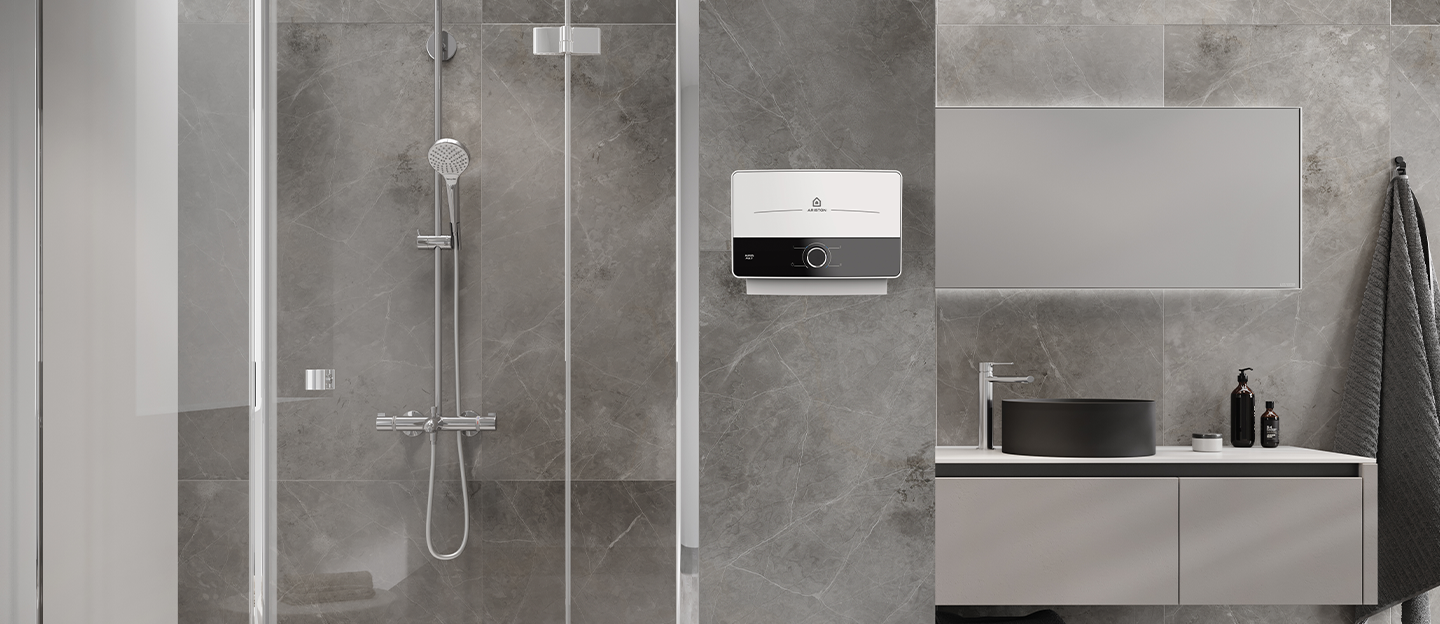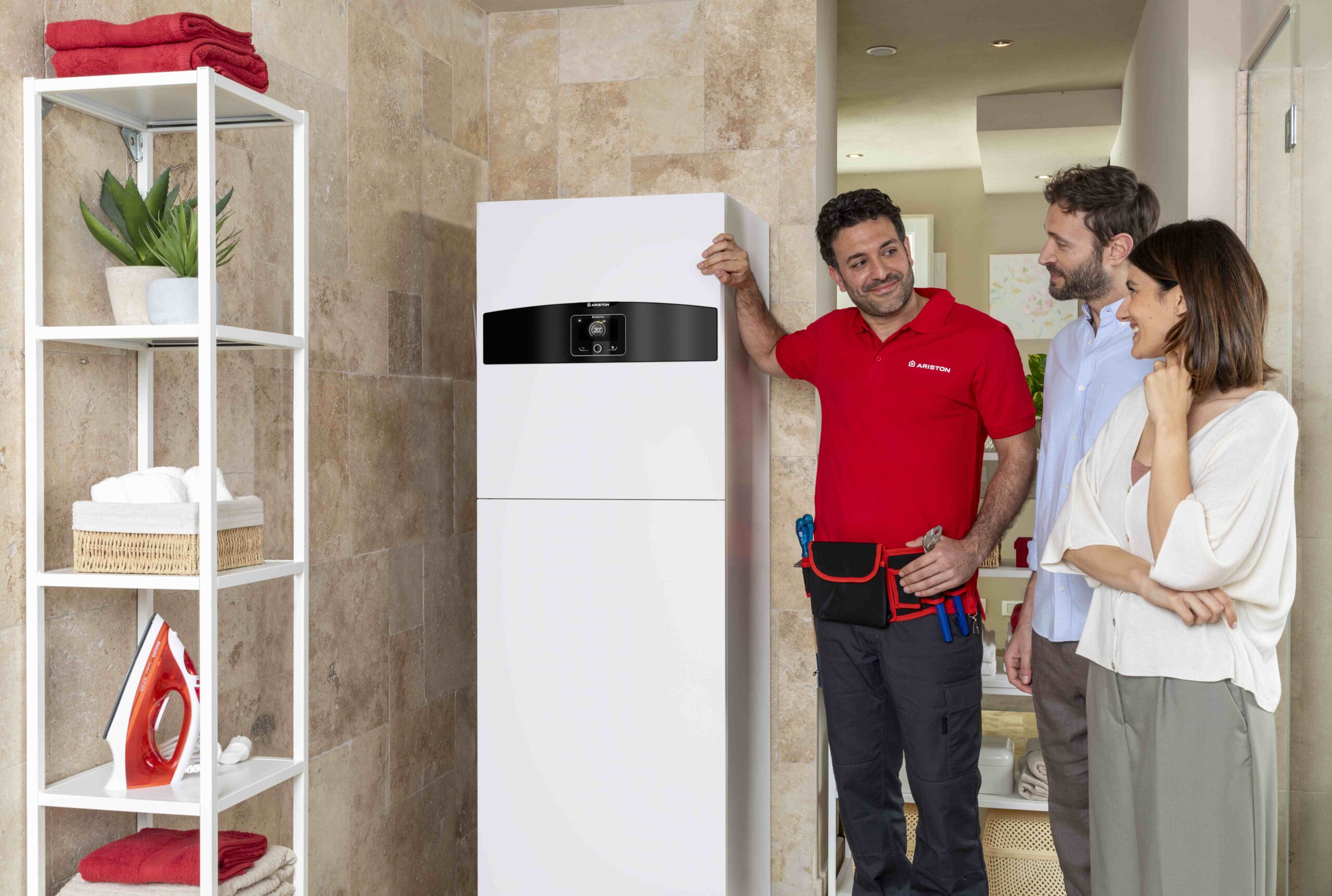The Advantages of a Heat Pump Water Heater
New technology has achieved high results in the development of heat pump water heaters, to satisfy a clientele that is increasingly attentive to nature.
All the advantages of a heat pump water heater
Hot water is often produced by the same system that supplies the domestic heating. However, these days there are more efficient solutions to do this job, one of the best of which is a heat pump water heater. This system offers a number of environmental and financial benefits; it is a very popular, eco-friendly option for the supply of domestic hot water, as is a solar thermal system. The integration of a heat pump allows you to use certain natural energy sources, drawing the required heat from the air. This configuration makes the house greener and saves energy consumption, especially in the absence of bivalent systems like instant condensing boilers. We explore all the advantages of a heat pump water heater, to give you an in-depth understanding of why to choose this technology for hot water in your home.
Greater energy savings
The main benefit of a high-efficiency water heater is the greater energy savings, as it is possible to reduce electricity consumption by up to 60-70% compared to an old water heater. In general, these devices can offer a level of efficiency of up to three times that of a traditional boiler, ensuring a much higher Coefficient of Performance (COP) because the system minimises waste and optimises energy performance. Obviously, consumption depends on various factors, including the number of people in the household and the correct sizing of the system, which is why it is essential to choose the right type of heat pump carefully with the help of a specialist technician. In any case, these modern and innovative water heaters produce clear savings on your energy bills, which will help to lower the fixed costs of maintaining your home.
Integration with photovoltaic systems
One of the advantages of heat pump water heaters is that they can be integrated with a photovoltaic system, maximising the environmental sustainability of the system for domestic hot water production. Of course, electric water heaters have to be connected to electricity to operate, using the traditional domestic network in the absence of more environmentally friendly alternatives. To make the system more eco-friendly, you can sign up for an electricity supply from renewable sources or install photovoltaic panels on the roof and use them to power the water heater. This option allows you to have free hot water with no environmental impact. Plus, with a storage system, you can make the whole thing even more efficient, covering all the energy needs of your water heater and other electric devices.
Reducing pollutant emissions
Environmental awareness has increased over the last few years, with more and more families paying attention to green issues and constantly looking for solutions that reduce greenhouse gas emissions. Our homes are responsible for a considerable amount of atmospheric pollution. To heat houses and produce domestic hot water for the bathroom and kitchen, we release large quantities of carbon dioxide, particulates and nitrogen oxide. To make buildings more eco-friendly, it is important to adopt more sustainable solutions, for example choosing a heat pump water heater instead of a traditional one. Emissions can be cut further by combining your water heater with a photovoltaic system, but even without solar panels it is still a highly efficient option that can reduce the amount of pollution generated for a lower environmental impact and better air quality.
Maximum comfort in the home
As we have seen, a heat pump water heater is an environmentally friendly solution that is extremely efficient, can be integrated with green systems and can save you money on your utility bills, proving to be a smart investment and socially beneficial. A heat pump can operate in spaces that are not used often or not heated, optimising the space available. Some state-of-the-art models also have advanced functions, such as sophisticated touchscreen displays for an easy and intuitive way to control the device, programs to speed up the production of hot water and software to monitor our habits to optimise performance and consumption, as well as the possibility of connecting them to your home Wi-Fi and controlling them remotely.






